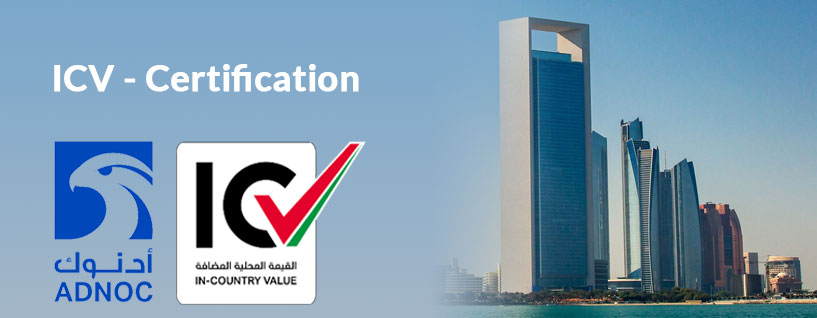
Unlocking Business Opportunities in the UAE:
The Significance of the ICV Certificate
If you're a business operating in the UAE, especially in sectors like oil and gas, understanding the importance of the In-Country Value (ICV) Certificate is paramount. This certification, introduced by ADNOC and expanded to other government entities, plays a pivotal role in fostering economic growth, promoting local businesses, and maximizing employment for Emiratis in the private sector.
Why ICV was Established:
The ICV program was established to nurture local goods and services, facilitate knowledge transfer, promote local supplier development, generate employment for Emiratis, and maximize the GDP contribution from the oil and gas industry.
Who Needs the ICV Certificate:
Entities such as ADNOC, Abu Dhabi Department of Economic Development, and Mubadala Development Company, among others, require suppliers and businesses to hold the ICV certificate for tendering and collaboration. Businesses in the oil and gas sector or those indirectly associated with it are more likely to need the ICV certificate when dealing with major corporations or government entities.
Reasons Businesses Need the ICV Certificate:
Tender Eligibility: The primary requirement for participating in tenders with major entities like ADNOC is possessing the ICV certificate.
Promotion of Local Goods and Services: Businesses with a higher ICV score are perceived as contributing more to the local economy, making them more appealing to major entities and opening doors to more contract opportunities.
Economic Diversification: Aligning with the UAE's goals of economic diversification, a high ICV score showcases a company's commitment to broader national objectives.
Employment Opportunities for Emiratis:The ICV program encourages companies to employ more Emiratis, providing a competitive advantage in tenders and contracts.
How to Obtain an ICV Certificate:
Choose a Certified Body: Select an auditing firm certified by the relevant entity (e.g., ADNOC) for ICV audits.
Undergo an ICV Audit: he auditing body evaluates various aspects of the business, such as local goods, third-party expenses, local investments, and employment statistics.
Receive the ICV Score: After the audit, the business is assigned an ICV score reflecting its contribution to the in-country economy.
Apply for Certification: Using the ICV score, businesses can apply for the ICV certificate, crucial for tendering processes.
Regular Renewal:ICV certification is not a one-time process; businesses need to renew it periodically through fresh audits.
Do Free Zone Businesses Need ICV Certificates?
While businesses in Free Zones enjoy certain exemptions, the need for an ICV certificate depends on the nature of business activities, target clients, the type of Free Zone, and future expansion plans. Consulting with local experts is advisable to understand specific business scenarios.
Obtaining the ICV certificate in the UAE is not just a compliance checkbox but a strategic move, especially for businesses eyeing collaboration in sectors like oil and gas. It aligns with the UAE's economic vision, unlocking a multitude of opportunities. Navigating the ICV program's complexities becomes more efficient with expert guidance. For streamlined success, consider partnering with professionals like Al Mizan Tax Consultants.













 Al
Al 